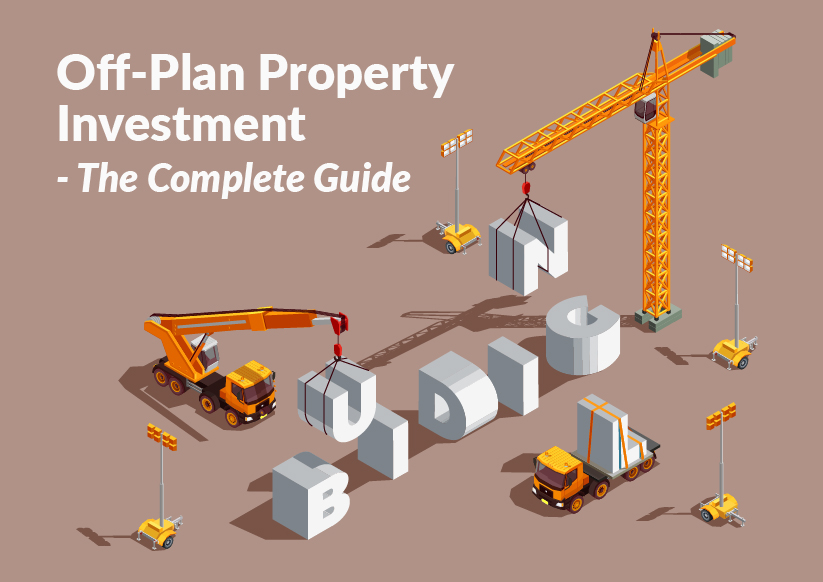Maximizing Your ROI in Real Estate: Proven Strategies for Smart Investors
In the competitive world of real estate investing, maximizing your ROI is essential for long-term success. Whether you're a seasoned investor or just starting, understanding proven strategies can make all the difference in your portfolio's performance. With rising property values and an increasingly savvy market, smart investors are now more than ever seeking innovative ways to enhance their returns.
From identifying undervalued properties to leveraging financing options, the right tactics can propel you ahead of the competition. This comprehensive guide will explore time-tested methods and fresh insights that empower you to make informed decisions. Get ready to transform your approach and unlock your full investment potential by learning how to maximize your ROI effectively. Your journey to real estate success starts here!
Understanding ROI in Real Estate
Return on Investment (ROI) is a critical metric for evaluating the profitability of your real estate investments. Essentially, ROI measures the efficiency of an investment by comparing the gain from the investment relative to its cost. In real estate, ROI can be calculated using various methods, including the capitalization rate, cash-on-cash return, and total return. Each method offers different insights into the performance of your investment, helping you make informed decisions.
To calculate ROI in real estate, begin by determining your net profit, which is the difference between your total income from the property and your total expenses. Next, divide this net profit by the total investment cost, which includes the purchase price, renovation expenses, and any other associated costs. Multiply the result by 100 to express the ROI as a percentage. This percentage indicates how well your investment is performing, with higher percentages signaling better returns.
Understanding ROI also involves recognizing the impact of time. Real estate investments often require a long-term outlook, as property values tend to appreciate over time. Therefore, it's crucial to consider both short-term gains and long-term potential when evaluating ROI. By keeping these factors in mind, you can develop a clearer picture of your investment's true profitability and make strategic decisions to maximize your returns.
Key Factors Influencing Real Estate ROI
Several key factors influence the ROI of real estate investments. Market conditions play a significant role, as property values fluctuate based on supply and demand, economic trends, and interest rates. Staying informed about current market trends and forecasts can help you identify opportunities for high returns and avoid potential pitfalls.
Another critical factor is property management. Effective management ensures that your property remains well-maintained and attractive to tenants, which can lead to higher occupancy rates and rental income. Efficient property management also involves timely maintenance and repairs, reducing the likelihood of costly issues down the line. Additionally, hiring a professional property management company can save you time and effort, allowing you to focus on expanding your investment portfolio.
Financing options also significantly impact ROI. The terms of your mortgage, including interest rates and loan duration, can affect your overall profitability. By securing favorable financing terms, you can reduce your monthly payments and increase your net income. Furthermore, leveraging financing options such as refinancing or home equity loans can provide additional capital for new investments or property improvements, further enhancing your ROI.
Types of Real Estate Investments
Real estate investment offers a diverse range of opportunities, each with its own set of advantages and challenges. Residential properties, including single-family homes, condominiums, and multi-family units, are popular choices for many investors. These properties often provide steady rental income and potential for appreciation, making them attractive long-term investments.
Commercial real estate, encompassing office buildings, retail spaces, and industrial properties, offers another avenue for investment. Commercial properties typically yield higher rental income and longer lease terms compared to residential properties. However, they also require more significant upfront capital and expertise in property management. Investors interested in commercial real estate should be prepared for a more hands-on approach and a deeper understanding of the market dynamics.
Real estate investment trusts (REITs) present an alternative for those seeking exposure to real estate without direct property ownership. REITs are companies that own, operate, or finance income-producing real estate and allow investors to buy shares. Investing in REITs provides liquidity, diversification, and the potential for regular dividends. However, market volatility and management fees can affect returns, so it's essential to research and choose the right REITs for your investment goals.
Conducting Comprehensive Market Research
Thorough market research is the cornerstone of successful real estate investing. Understanding local market conditions, including property values, rental rates, and vacancy rates, enables you to make informed decisions and identify lucrative opportunities. Start by analyzing historical data and trends in the area where you plan to invest. This information can provide insights into property value appreciation and potential rental income.
Additionally, consider the economic factors that influence the real estate market. Employment rates, population growth, and infrastructure development all play a role in shaping property demand and values. Areas with strong job markets and increasing populations are likely to experience higher property value appreciation and rental demand. Keep an eye on upcoming projects and developments, such as new transportation hubs or commercial centers, as these can significantly impact property values.
Engage with local real estate professionals, such as agents, brokers, and property managers, to gain firsthand insights into the market. These experts can provide valuable information on neighborhood trends, tenant preferences, and potential investment pitfalls. By combining comprehensive data analysis with local expertise, you can develop a well-rounded understanding of the market and make strategic investment decisions.
Financing Options to Enhance ROI
Securing the right financing is crucial for maximizing your real estate ROI. Traditional mortgage loans are the most common financing option, offering fixed or adjustable interest rates and varying loan terms. To obtain the best mortgage rates, maintain a strong credit score, and shop around for competitive offers from different lenders. Lower interest rates and favorable loan terms can significantly reduce your monthly payments and increase your net income.
For investors seeking more flexibility, private money lenders and hard money loans provide alternative financing options. These loans are typically easier to obtain and offer faster approval times compared to traditional mortgages. However, they often come with higher interest rates and shorter loan terms, making them more suitable for short-term investments or property flips. Carefully evaluate the costs and benefits of private and hard money loans to determine if they align with your investment strategy.
Leverage financing strategies such as refinancing and home equity loans to unlock additional capital for your investments. Refinancing your existing mortgage at a lower interest rate can reduce your monthly payments and free up cash flow for new investments or property improvements. Home equity loans allow you to tap into the equity built up in your property, providing funds for renovations, debt consolidation, or new acquisitions. By strategically utilizing these financing options, you can enhance your ROI and expand your investment portfolio.
Importance of Location in Real Estate Investment
Location is one of the most critical factors in real estate investing, as it directly impacts property values, rental demand, and overall ROI. Properties in prime locations, such as those near business districts, schools, and public transportation, tend to attract higher rental rates and experience greater appreciation over time. Conversely, properties in less desirable areas may struggle with lower demand and slower value growth.
When evaluating potential investment locations, consider the neighborhood's amenities and infrastructure. Proximity to shopping centers, parks, and recreational facilities can enhance the property's appeal to tenants and buyers. Additionally, areas with good schools and low crime rates are often more attractive to families, resulting in higher occupancy rates and stable rental income.
Stay informed about upcoming developments and zoning changes in the area. Infrastructure projects, such as new roads, public transportation, and commercial centers, can significantly impact property values and rental demand. Conversely, zoning changes that allow for increased development or higher-density housing can create opportunities for value appreciation. By carefully assessing the location and its potential for growth, you can make strategic investment decisions that maximize your ROI.
Renovations and Value-Add Strategies
Investing in property renovations and value-add strategies can significantly enhance your real estate ROI. Upgrading outdated features, improving energy efficiency, and enhancing curb appeal can attract higher-paying tenants and increase property values. Focus on renovations that offer the highest return on investment, such as kitchen and bathroom remodels, as these improvements often yield the most significant impact on property value and rental rates.
Consider implementing value-add strategies that go beyond basic renovations. Adding amenities such as in-unit laundry, upgraded appliances, and smart home technology can set your property apart from the competition and justify higher rental rates. Additionally, creating additional income streams, such as renting out storage spaces or offering paid parking, can boost your overall revenue.
It's essential to balance the costs of renovations with the potential returns. Conduct a cost-benefit analysis to determine which improvements will provide the most significant impact on your ROI. By strategically investing in renovations and value-add strategies, you can enhance your property's appeal, increase rental income, and achieve higher returns on your investment.
Tax Benefits and Incentives for Real Estate Investors
Real estate investing offers several tax benefits and incentives that can enhance your ROI. One of the most significant advantages is the ability to deduct mortgage interest, property taxes, and operating expenses from your taxable income. These deductions can substantially reduce your tax liability and increase your net income.
Depreciation is another valuable tax benefit for real estate investors. The IRS allows you to depreciate the value of your investment property over a specified period, typically 27.5 years for residential properties and 39 years for commercial properties. Depreciation provides a non-cash deduction that can offset your rental income and reduce your overall tax burden, further enhancing your ROI.
Investors can also take advantage of tax incentives such as 1031 exchanges and opportunity zones. A 1031 exchange allows you to defer capital gains taxes by reinvesting the proceeds from the sale of one property into a similar property. Opportunity zones offer tax incentives for investing in designated economically distressed areas, including deferral and potential exclusion of capital gains taxes. By leveraging these tax benefits and incentives, you can maximize your profitability and achieve higher returns on your real estate investments.
Utilizing Technology and Data Analytics
In today's digital age, technology and data analytics play a crucial role in maximizing real estate ROI. Advanced data analytics tools enable investors to analyze vast amounts of information, identify trends, and make data-driven decisions. By leveraging these tools, you can gain insights into market conditions, property performance, and tenant preferences, allowing you to optimize your investment strategy.
Property management software streamlines various aspects of property management, including tenant screening, lease management, and maintenance tracking. These platforms improve efficiency, reduce administrative burdens, and enhance tenant satisfaction, ultimately leading to higher occupancy rates and rental income. Additionally, automated rent collection and payment processing systems ensure timely payments and reduce the risk of late or missed rent.
Emerging technologies such as virtual reality (VR) and augmented reality (AR) are transforming the way investors evaluate properties. VR and AR tools allow you to conduct virtual property tours, visualize potential renovations, and assess the property's condition remotely. These technologies save time and resources, enabling you to make informed investment decisions more efficiently. By embracing technology and data analytics, you can stay ahead of the competition and maximize your real estate ROI.
Conclusion: Crafting Your Investment Strategy for Success
Maximizing your ROI in real estate requires a comprehensive and strategic approach. By understanding the key factors that influence ROI, conducting thorough market research, and leveraging the right financing options, you can make informed investment decisions that yield high returns. Additionally, focusing on prime locations, implementing value-add strategies, and taking advantage of tax benefits can further enhance your profitability.
Embracing technology and data analytics allows you to optimize your investment strategy and stay competitive in an increasingly sophisticated market. By continuously monitoring market trends, property performance, and tenant preferences, you can adapt your approach and seize new opportunities for growth. Remember, successful real estate investing is a dynamic process that requires ongoing learning and adaptation.
As you embark on your journey to real estate success, keep these proven strategies in mind and remain proactive in your investment approach. With careful planning, diligent research, and strategic execution, you can unlock your full investment potential and achieve long-term financial success. Your path to maximizing your ROI in real estate starts now—take the first step and transform your investment strategy today.





_cb15f__lg.jpg)





_c2479__lg.jpg)
